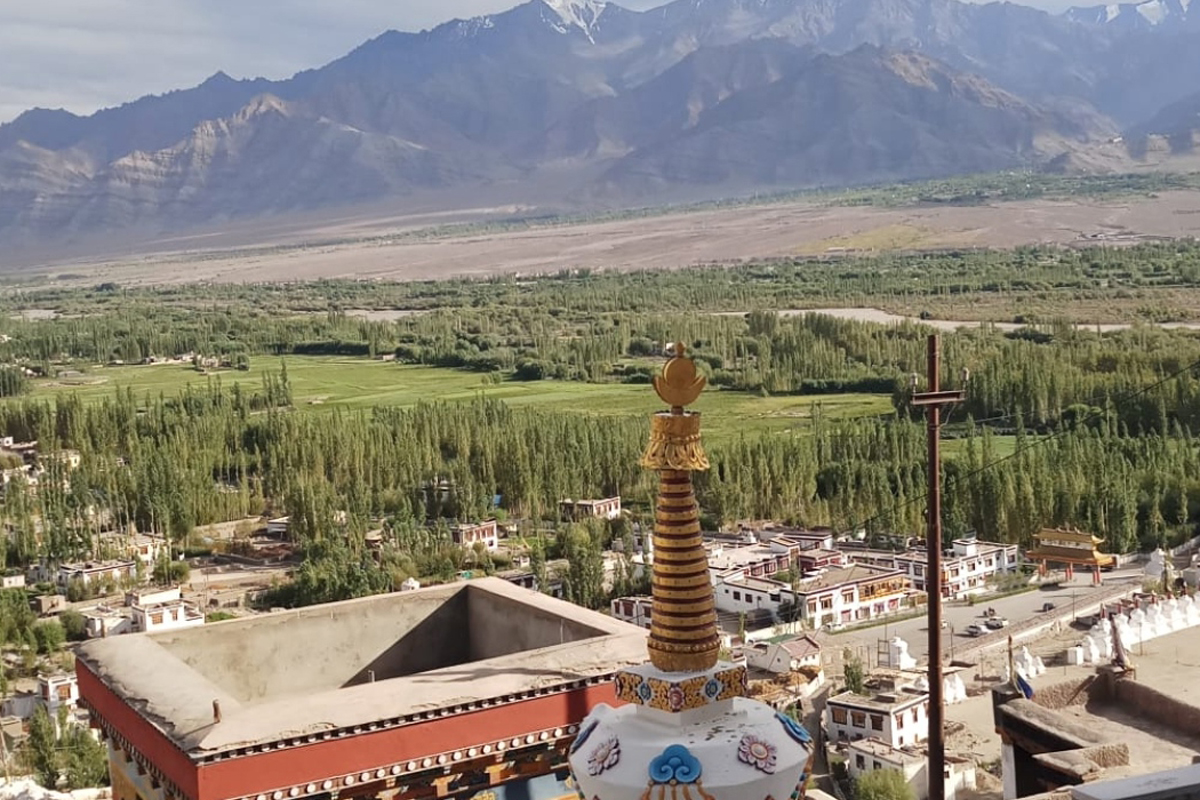The cold desert region of Ladakh is on the path to be converted into100% organic to achieve the target of making the newly carved out Union Territory (UT) carbon-free.
This was stated by Lt. Governor RK Mathur while speaking at the
curtain raiser event of the 6th edition of the Indian International Science Festival organized by the Union Ministry of Science and Technology.
Advertisement
He said that the Mission Organic Development Initiative (MODI) has been initiated which will convert Ladakh into a 100 percent organic state, as part of the Prime Minister’s vision in making Ladakh Carbon-free, which can be made possible only with the help of science. This, he said is an achievable goal.
Mathur expressed hope that with the set target of installing 1100 greenhouses, Ladakh will substantially increase vegetable production around the year.
He said that the UT administration has commissioned the Indian Remote Sensing Agency (IRSA) based in Dehradun to provide Ladakh with satellite maps of various features viz. glaciers, water sources, animal resources etc, so that a database can be maintained and more importantly to continuously study the change in these features, which will help make plans for the development of Ladakh.
He stated that the UT administration is seeking help from the Council of Scientific and Industrial Research (CSIR) for generating a land-use plan to map the potential growth of agricultural and horticultural crops, medicinal and aromatic plants etc, thus contributing substantially to the economy of Ladakh.
Speaking of science and its role in the promotion of tourism, Mathur said that a study is being undertaken to explore the tourist carrying capacity of Ladakh.
Citing examples of the predominant role of science in the development of animal resources, Mathur said that the UT administration is in the process of developing a breeding policy, fodder development policy and policies to achieve maximum benefits out of Ladakh’s indigenous resources such as the indigenous cow, goats and Yak etc, which offer good commercial opportunities.
He complimented the Defence Institute for High Altitude Research (DIHAR) for its substantial contributions to Ladakh and expressed his gratitude on behalf of the people of Ladakh.
Mathur stated that even though Ladakh has joined hands with science slightly later than rest of the world, it has been now well realized that science can play an instrumental role in making life easier and more productive.
Ladakh wishes to see more science institutions in Ladakh so that the newly formed UT can benefit from scientific inventions for the betterment of the living standards, income level and curbing damages to Ladakh’s ecology.











